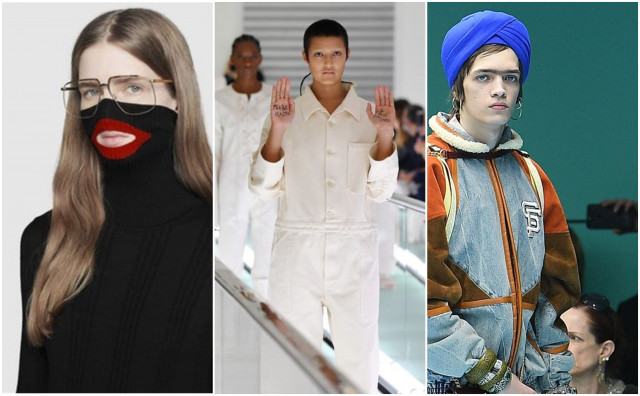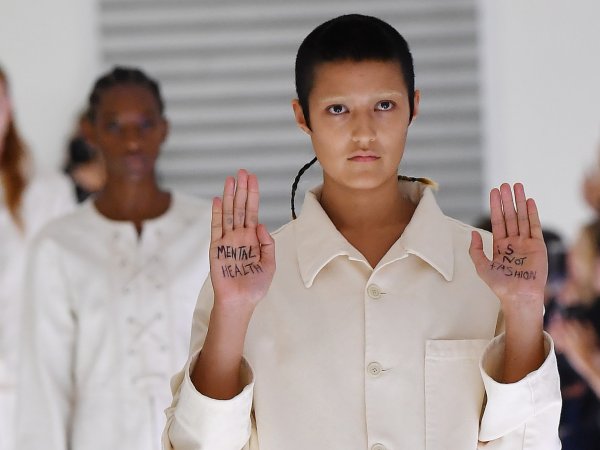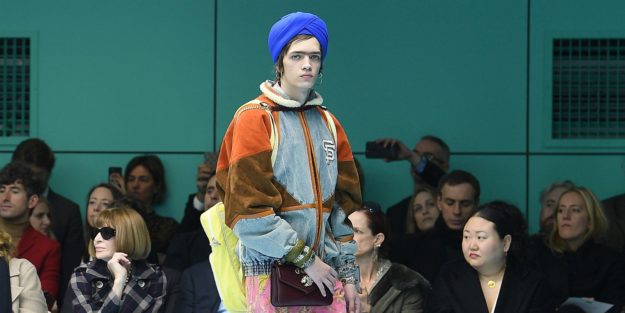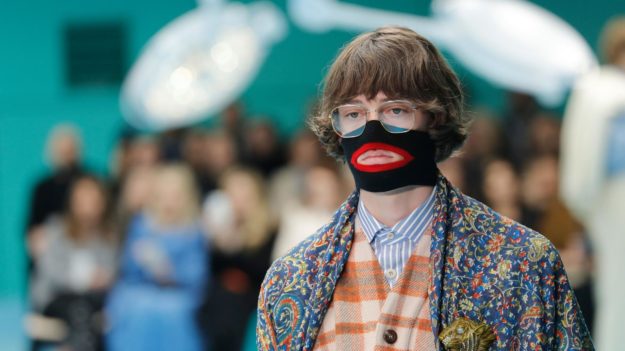Gucci and its history of fashion blunders
The brand's own model has protested on its runway as it continues to make controversial designs

In its defence, the luxury Italian brand has always claimed these incidents to be a representation of the current issues/cultures, instead of a mockery or belittlement of any sort. Yet, the designs have aroused ample controversy around the world, as people accuse Gucci of cashing in on social problems, cultural and religious sentiments, and now mental illnesses to generate propaganda.

Just last Sunday, at the Milan Fashion Week, a most rare incident took place when a Gucci model herself double-crossed the brand by protesting against it on the runway.
https://www.instagram.com/p/B2t-g4bAB59/
As other models walked for Gucci wearing revamped versions of the straight jackets historically used in psychiatric hospitals, model Ayesha Tan Jones appeared with their hands held up and the words “Mental health is not fashion” written on them.
The model identifies as a non-binary and has previously suffered with mental health issues itself. They also uploaded the moment on their Instagram, along with a post of gratitude for their supporters and fellow models.
https://www.instagram.com/p/B2wARwMAu1t/
Jones wrote, “As an artist and model who has experienced my own struggles with mental health, as well as family members and loved ones who have been affected by depression, anxiety, bipolar and schizophrenia, it is hurtful and insensitive for a major fashion house such as Gucci to use this imagery as a concept for a fleeting fashion moment." They added, "It is in bad taste for Gucci to use the imagery of straitjackets and outfits alluding to mental patients while being rolled out on a conveyor belt as if a piece of factory meat.”
Jones further accused the high-end label of presenting mental health issues as “props for selling clothes in today’s capitalist climate” before describing the designs as “vulgar, unimaginative and offensive." They said, "Gucci models who were in the show felt just as strongly as I did about this depiction of straight jackets and without their support, I would not have had the courage to walk out and peacefully protest."
Gucci has also issued a statement in response to Jones on Instagram on Sunday evening.
https://www.instagram.com/p/B2uTTVwCg-G/
"The most extreme version of a uniform dictated by society and those who control it, to represent how through fashion, power is exercised over life, to eliminate self-expression," the statement reads. "These clothes were a statement for the fashion show and will not be sold."

But as said earlier, this is not the first time Gucci has had to clarify something of this sort. Just recently, it released the 'Indy Full Head Wrap' costing for almost $800, described on Nordstrom's website as "a gorgeously crafted turban that will turn heads while keeping you in comfort as well as trademark style."
The product sparked accusations of cultural insensitivity from the Sikh community as many criticised it and accused the brand of belittling their faith.
Dear @gucci, the Sikh Turban is not a hot new accessory for white models but an article of faith for practising Sikhs. Your models have used Turbans as ‘hats’ whereas practising Sikhs tie them neatly fold-by-fold. Using fake Sikhs/Turbans is worse than selling fake Gucci products pic.twitter.com/sOaKgNmgwR
— Harjinder Singh Kukreja (@SinghLions) May 16, 2019
One tweet read, “Dear @gucci, the Sikh turban is not a hot new accessory for white models but an article of faith for practicing Sikhs. Your models have used turbans as ‘hats’ whereas practicing Sikhs tie them neatly, fold-by-fold. Using fake Sikhs/turbans is worse than selling fake Gucci products.”
The brand faced another major scandal when people called out its $900 sweater that allegedly resembled a 'blackface'. It featured a mouth cover with an exaggerated red outline around the lips.

According to the National Museum of African-American History and Culture, white actors initially used it in minstrel shows during the 1930’s to portray black characters as "lazy, ignorant, superstitious, hypersexual and prone to thievery and cowardice."
Gucci deeply apologizes for the offense caused by the wool balaclava jumper.
— gucci (@gucci) February 7, 2019
We consider diversity to be a fundamental value to be fully upheld, respected, and at the forefront of every decision we make.
Full statement below. pic.twitter.com/P2iXL9uOhs
Gucci was forced to apologise after this incident as well, writing, "We consider diversity to be a fundamental value to be fully upheld, respected and at the forefront of every decision we make."
Have something to add to the story? Share in the comments below.



















COMMENTS
Comments are moderated and generally will be posted if they are on-topic and not abusive.
For more information, please see our Comments FAQ